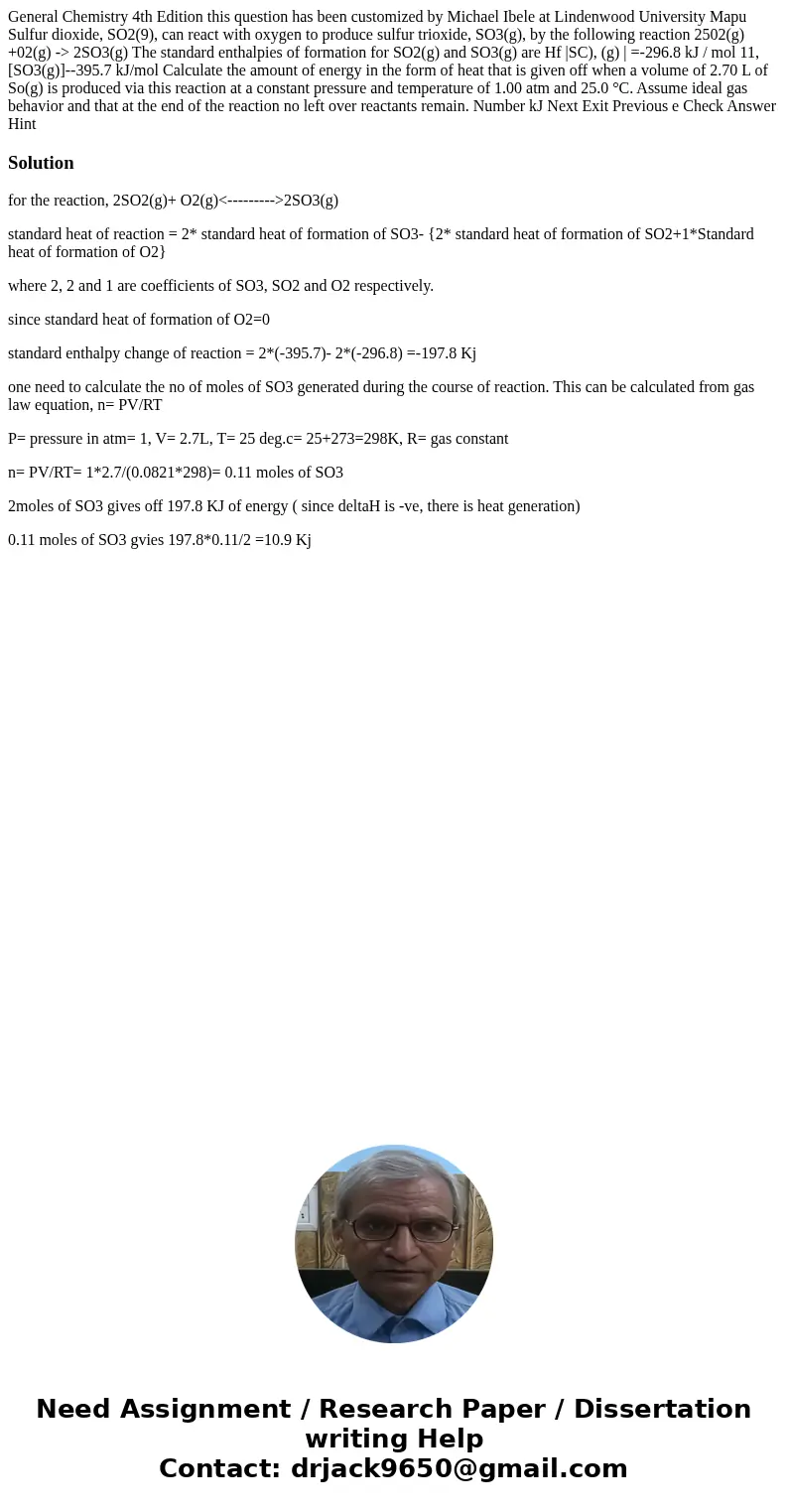General Chemistry 4th Edition this question has been customi
Solution
for the reaction, 2SO2(g)+ O2(g)<--------->2SO3(g)
standard heat of reaction = 2* standard heat of formation of SO3- {2* standard heat of formation of SO2+1*Standard heat of formation of O2}
where 2, 2 and 1 are coefficients of SO3, SO2 and O2 respectively.
since standard heat of formation of O2=0
standard enthalpy change of reaction = 2*(-395.7)- 2*(-296.8) =-197.8 Kj
one need to calculate the no of moles of SO3 generated during the course of reaction. This can be calculated from gas law equation, n= PV/RT
P= pressure in atm= 1, V= 2.7L, T= 25 deg.c= 25+273=298K, R= gas constant
n= PV/RT= 1*2.7/(0.0821*298)= 0.11 moles of SO3
2moles of SO3 gives off 197.8 KJ of energy ( since deltaH is -ve, there is heat generation)
0.11 moles of SO3 gvies 197.8*0.11/2 =10.9 Kj

 Homework Sourse
Homework Sourse